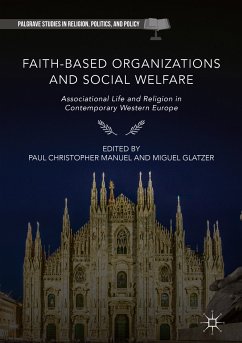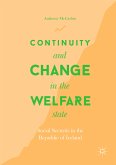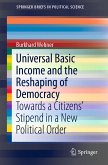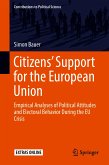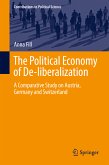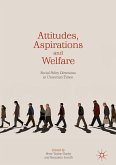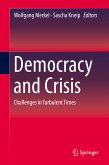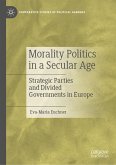This volume examines the role and function of religious-based organizations in strengthening associational life in a representative sample of West European countries: newly democratized and long-established democracies, societies with and without a dominant religious tradition, and welfare states with different levels and types of state-provided social services. It asks how faith-based organizations, in a time of economic crisis, and with declining numbers of adherents, might contribute to the deepening of democracy. Throughout, the volume invites social scientists to consider the on-going role of faith-based organizations in Western European civil society, and investigates whether the concept of muted vibrancy aids our theoretical understanding.
Dieser Download kann aus rechtlichen Gründen nur mit Rechnungsadresse in A, B, BG, CY, CZ, D, DK, EW, E, FIN, F, GR, HR, H, IRL, I, LT, L, LR, M, NL, PL, P, R, S, SLO, SK ausgeliefert werden.

